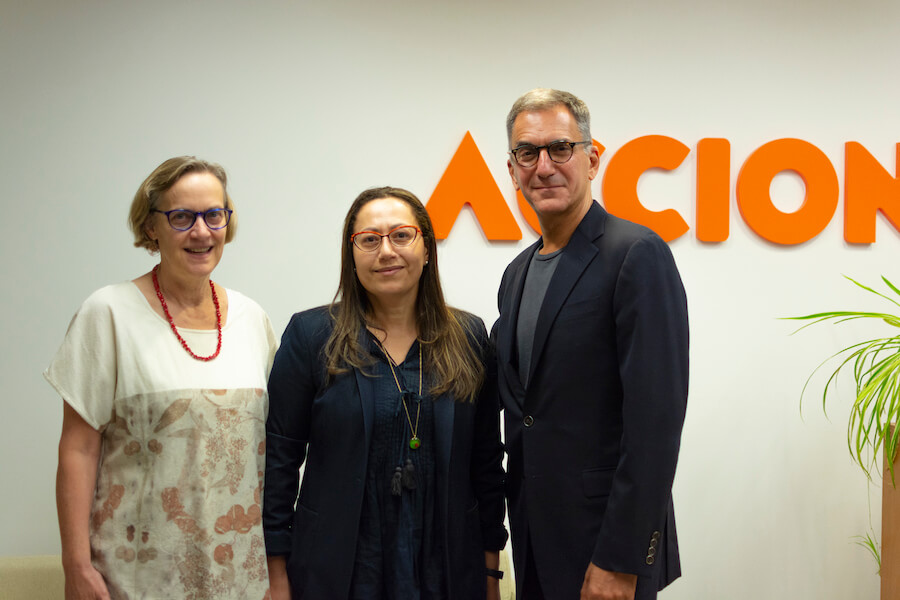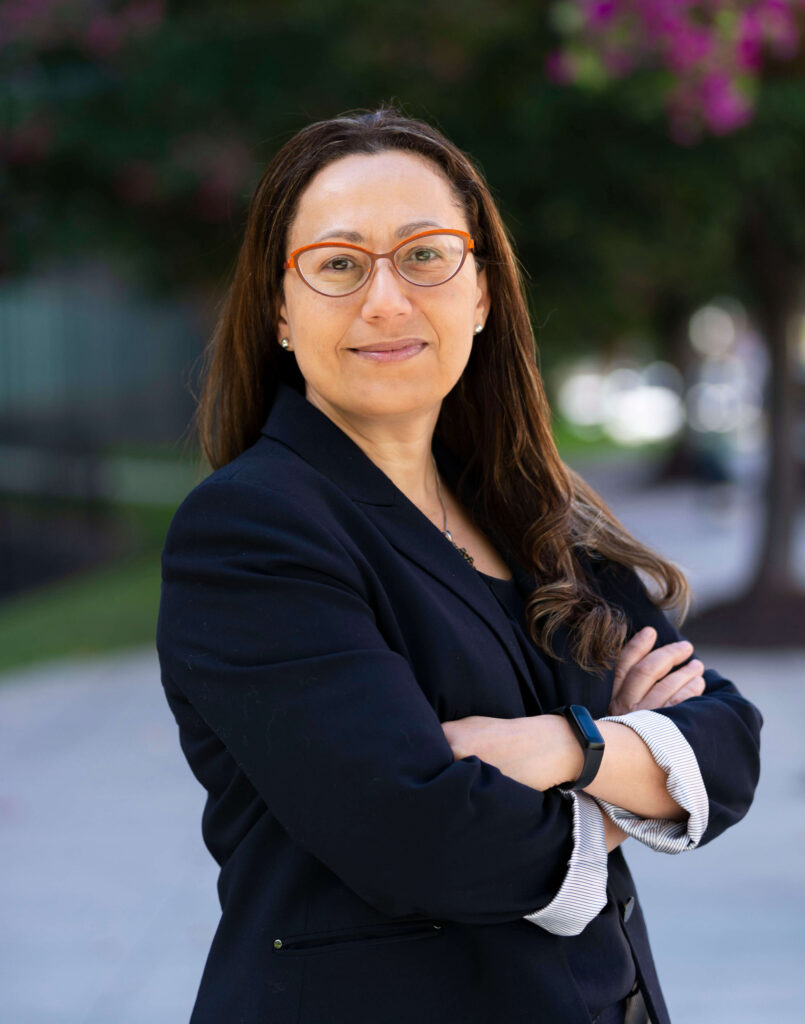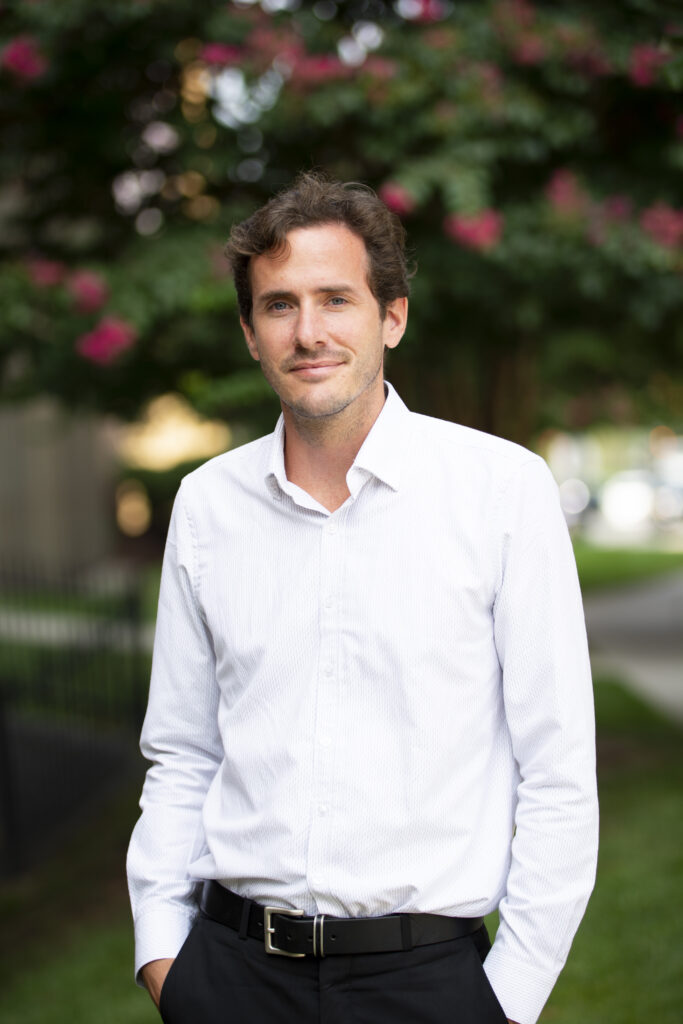
Earlier this month, we announced that Mayada El-Zoghbi is joining us as the new Managing Director of the Center for Financial Inclusion at Accion (CFI). Mayada is known for her extensive research in – and advocacy for – financial inclusion. As CGAP’s Lead for Strategy, Research & Development, she coordinated CGAP’s strategy development and its research on women’s financial inclusion, financial services in crisis environments, and other emerging topics.
Prior to CGAP, Mayada founded and managed a development consulting firm, led numerous technical assistance, evaluation, and research assignments, served as a research director for a USAID initiative, helped develop several financial institutions, and lectured at Columbia’s School of International and Public Affairs (SIPA).
CFI: What sparked your passion for financial inclusion, and what continues to propel it as you assume your new role at CFI?
Mayada: After graduating from college, I went to Morocco on a research fellowship with a program called Minnesota Studies in International Development (MSID). I lived both with a family in Rabat and spent a month in a rural community doing survey work on a rural credit research project with a professor from the Agronomy Institute in Rabat. This experience piqued my interest in financial services.
The project in Morocco was clearly not good practice and I was interested to learn more about what works. I decided to go back to graduate school to learn more about it, so I studied at SIPA. It was during a course on microenterprise development, taught by Heather Clark, who was heading UNCDF at the time and who is now a dear friend, that I knew for sure that this was a field that combined all of my interests in business, financial services, and sustainable development. Most importantly, it aligned with my social values.
The inclusive finance field has expanded so much beyond my initial exposure to an agricultural loan program in rural Morocco. The many ways in which this sector continues to evolve and expand is what continues to draw me in. I’m especially excited by our ability to shape responsible growth of the industry, and the role that organizations like CFI have in guiding both public and private sector actors in inclusive finance.
I’m especially excited by our ability to shape responsible growth of the industry.
CFI: Why did you choose to join CFI? What about CFI resonated with you?
Mayada: I’ve worked on inclusive finance from many angles: managing institutions in the field, supporting donors on their strategies, conducting research, providing technical assistance to providers and other stakeholders. All of these experiences have been rewarding, but perhaps the role that I’ve enjoyed the most is thought leadership. I’ve been fortunate to do that at CGAP for the past 10 years.
With its convening power, independence, and ability to influence the private sector, investors and the broader inclusive finance community, CFI is unique. Its position as an independent think tank with deep expertise in consumer protection and a strong advocacy platform representing people living in poverty makes it an extremely compelling platform for me personally. At a time when digital platforms represent transformative opportunities to serve the poor and present serious risks for those who are the least able to withstand those risks, there’s no denying that a laser focus on consumer protection has to be front and center. Ensuring that the digital economy evolves in a way that’s both inclusive and protective is critical, and I believe that CFI is well positioned to lead the industry in such a way as to make that a reality.
Mayada El-Zoghbi, Managing Director, Center for Financial Inclusion at AccionEnsuring that the digital economy evolves in a way that’s both inclusive and protective is critical, and I believe that CFI is well positioned to lead the industry in such a way as to make that a reality.
CFI: How do you define and measure successful leadership of a social impact organization?
Mayada: There are many different ways to define leadership. For me, it’s the ability to bring others along, to inspire trust, and to demonstrate by example. People who work for a social impact organization also want a leader who has passion for its cause, a vision that’s inspirational, and values and behaviors that align with the organization’s social mission. As a leader, you measure your effectiveness by your ability to inspire and mobilize others.
CFI: What do you consider our sector’s most pressing need?
Mayada: As a community we have been overly focused on driving access to basic accounts and improving the business model economics so that providers can make money serving the poor. Of course, technology is what’s enabled all this to happen. But perhaps we’ve lost sight of the purpose and we’ve forgotten that development is also very much about people. Technology is just a tool!
The community has much more work to do if we are to understand or drive improved well-being for poor people. This is why we still have people perplexed that uptake continues to be low and usage of formal financial services continues to lag behind expectations.
Undeniably, providers need an incentive to serve excluded segments; but what’s good for customers is also good for business. Also, we need to move out of our “Washington consensus” mindset that commercial models are the only models that are worth exploring. Fortunately, we’re increasingly seeing some change: renewed focus on public-private partnerships, blended finance solutions, and funding structures that enable experimentation and even some tolerance for failures. There’s no question in my mind that the role of the state in shaping an economy, by defining incentives and disincentives through regulations and policies, is as important as the providers that operate in it.
CFI: What topics are of greatest interest to you?
Mayada: I’m most interested in big, structural-level solutions. I don’t believe we can get the transformational changes we’re looking for by continuing to only focus on micro-level or niche interventions. While at CGAP, I pushed for greater use of using systems thinking for solving remaining barriers in inclusive finance. This approach, by definition, means there’s no one-size-fits-all solution, and that we must understand and diagnose each market, each client segment, and each opportunity within their broader contexts. For the women’s segment, for example, we were beginning to diagnose and eventually move into experiments that could address norms barriers that are often at the heart of the technological and financial divide between men and women. I’d love to see much more work on this issue extended to other important excluded segments, like youth and the rural poor.
For many important groups in society, like women and youth, I see a big opportunity to explore approaches to help them adapt to the digital economy. How can we embed protections in e-commerce and other social platforms that enable poor people to take risks and make investments that enable them to improve their well-being? How do we help these groups adapt their livelihoods and their skill sets in this period of massive environmental, social and technological changes? These issues need to be our focus. We need to shape how the new normal unfolds and not wait until vested interests shape it for us.
CFI: You worked on updating CGAP’s financial inclusion impact narrative. Tell us why you started on this topic, what you learned, and how you might bring your takeaways to CFI.
Mayada: Financial services for the poor have been too heavily invested in access without a clear understanding of whether that access is beneficial for poor people. We often get so excited by an idea, yet we discover much later that it may not hold its intended promise for people living in poverty. The work on updating the impact narrative tries to bring evidence to the equation. It’s building a new narrative that’s both realistic and built on what we know can have impact on the lives of the poor.
The rationale for this work was that many stakeholders – including a large number of bilateral and multilateral donors – could no longer justify dedicated programming focused on financial services for the poor because they were unable to demonstrate its effectiveness. The SDGs identify many other pressing goals and we were seeing that donors were shifting their focus more directly to these goals, such as jobs, climate, and gender equality.
Those of us in the inclusive finance community perhaps take it for granted that financial services are a backbone to any economy. So, we naturally supported this shift for our sector from a leading role to a supportive function. But we must do more to clarify and advocate how financial services are still instrumental to get the real economy to function better and more efficiently. We must continue to remind policy makers and other decision makers that development or economic growth that is not inclusive of all segments of society is not a future that anyone of us wants.
We must do more to clarify and advocate how financial services are still instrumental to get the real economy to function better and more efficiently.
Financial services are a backbone in any economy; they enable companies to invest and in turn create jobs, they facilitate transactions, they make a government more efficient. Responsible, protective and well-designed financial services ensure that the future economy is for everyone and not just the few.











